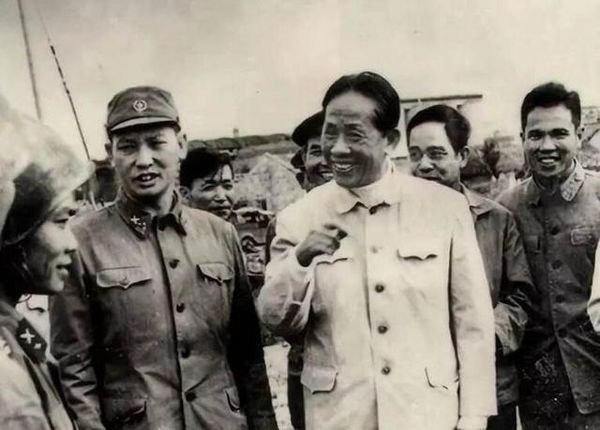Depends on how you interpret the so-called awesome.

Lê Duẩn was indeed a hardline leader who ran Vietnam for close to twenty years and dragged it almost to the point of collapse. So much so that as soon as he died, his policies were overturned by his successors.
During his 17 years in power, Vietnam rapidly evolved from being a close brother to China to an implacable enemy, and fought a war that lasted more than a decade and changed the national fortunes of both countries, especially Vietnam, forever.
In the later years, Lê Duẩn was the object of almost intra-party discontent, as evidenced by his sudden illness and death and the selection of his successors by the Viet Cong, Trường Chinh, who was sidelined by Lê Duẩn, and Nguyễn Văn Linh, who was imprisoned on the orders of Le Phuoc.
Although Lê Duẩn unified the south of Vietnam, he adopted a relatively one-sided foreign policy, thus adversely affecting the country's development. Vietnam's actions were resisted by the rest of the world, as the world was in the midst of a third technological revolution. Vietnam was still in a situation of invading other countries, its economy was blockaded by various countries and it did not have any external trade contacts, which led to a lag in domestic development and missed the best period of economic development. Instead of making the life of the people better, it regressed and even food and clothing became a problem.
According to some sources, between 1978 and 1984, prices in Vietnam rose rapidly, by more than one half per year on average, and the national economy regressed significantly. According to statistics, by 1985, Vietnam's industrial output had not yet reached the level of 1978, and the economic decline was more severe than the general public could afford.
This was the case with industry, but food production was even lower, and Vietnam went from being a major food exporter to a major food importer. This has led to a decline in Vietnam's overall power and a decline in the international ranking of the country's overall power, placing it among the poorer countries.
Some media interviewed local Vietnamese about their views on Lê Duẩn after his death, and some still could not get over what Lê Duẩn had done in Vietnam. When asked what they wanted from the next leader, some replied simply that they would like to see Vietnam's economy improve. It seems that in the minds of the Vietnamese, the economy has become a major issue on their minds. Although there are many people in Vietnam who are indifferent to Lê Duẩn, there are also Vietnamese who support Lê Duẩn.
They viewed Lê Duẩn from the standpoint of his unification of the south and the achievement of Vietnamese unity as a man of merit for Vietnam, believing that Lê Duẩn was an outstanding son of the Vietnamese nation and that Lê Duẩn's previous reforms blazed the trail for future developments. Many people also visit Lê Duẩn's memorial every year on the day of his birth. The leaders of the Vietnamese government are among those who pay tribute to Lê Duẩn, who is widely admired.
There are two very different attitudes to what Lê Duẩn did in Vietnam. Those who hold a grudge against Lê Duẩn blame Lê Duẩn alone for the decline of the Vietnamese economy, and even Lê Duẩn's achievements cannot offset the impact of his actions on Vietnam. Others, on the other hand, were more focused on recognising Lê Duẩn's achievements and were grateful for his unification of Vietnam. Merit and demerit no longer matter, Lê Duẩn's departure took away all that was possible.
However, had Lê Duẩn's policies not been in place, would Vietnam's economy have developed into a developed country? Not necessarily, as the French occupied Vietnam at the time, and without Lê Duẩn's presence, the situation in Vietnam would probably have remained unchanged and the unification of the North and the South would have been even more unpredictable.Lê Duẩn's presence was a unique one for Vietnam, and he played a part in its history.
Although Lê Duẩn's decisions had a profound impact on Vietnam, objectively speaking, we cannot dismiss his contribution to the country and should look at what Lê Duẩn did from an objective perspective. In any case, he brought about the reunification of Vietnam, otherwise he would not be so much missed by the Vietnamese today.
What Lê Duẩn did in Vietnam showed many countries that when a country has great military power, if the leader of a country does not control his desires well, then he will bring unimaginable disaster to his country and the world.
Vietnam's experience has also shown the world that isolation will not work in order to develop a country's economy; trade must be established with other countries and only by integrating into world development can a country's economy be gradually driven up and a country gradually become stronger.

